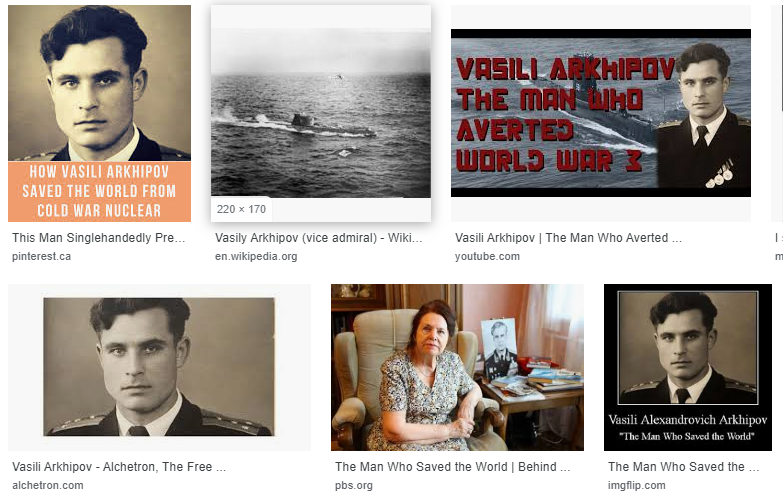‘No’ – Speaking Truth To Power
How good are you at saying 'No'? Here's why it is so important to get good at using that small word.

Threat of War
At the start of the new term I was listening to the sixth form talking about World War Three. My own kids talked about it after the attack by the USA.
I remember being scared as a child during the Cold War. The leaflets arrived in our house telling us that in the event of a nuclear strike we should hide under the table and paint our windows black. Do you also remember the cartoon public information video telling us how to do just that? Laughable.
I remember my mother then telling me not to worry as it wouldn’t happen because no one would want it to happen as it would be so bad for everyone. I want to say the same to these young people.
I am part of a lucky generation, none of my contemporaries had to go to war (although some in the services did). Now we’re too old, and I wonder what the future holds for our children and grandchildren.
Over the Christmas holidays we watched the Top Gear crew on a Grand Tour on boats through Vietnam and Cambodia and so got talking about that war, how it was fought, what it was for and the people who died on both sides. We also watched Dunkirk, not a dialogue rich film, but one which clearly shows how so many young lives were lost.
Cuban Missile Crisis 1962
Then my younger son asked about the Cuban Missile Crisis. History is not my strong suit so we turned to Youtube where we learned that diplomacy had saved the day but also the strength of character of one man standing his ground and saying ‘No’.
Whilst John Kennedy and Nikita Khrushchev were in discussions, the US forces began dropping non-lethal depth charges to encourage the Soviet submarines to surface. However, the crew of the Soviet submarine B-59 had been incommunicado and so were unaware of the intention. They thought they were witnessing the beginning of a third world war and so began the process needed to launch the nuclear torpedo they were carrying. There were 11 US Navy ships nearby all of which could have been a target and the weapon itself had a similar power to the bomb dropped in Hiroshima.
In order to launch the torpedo, all three senior officers on board had to agree and 34 year old Vasili Arkhipov refused. He calmed his fellow officers down and convinced them they were not under attack. His refusal halted the firing of the torpedo, which gave the diplomatic process chance to work. You can watch more about it here. My reading is clear that Arkhipov averted a nuclear war between the US and Russia in 1962. None of us can be any illusion that nuclear war ‘over there’ is actually ‘here’ too. We understand so much more after incidents like Chernobyl how radiation is carried by air and land and water affecting us all.
Standing up to Power and saying ‘No’
I told my boys not to read the World War Three memes that were doing the rounds, whipping up fear and anxiety, feeding jingoism and bigotry. Instead what they and we all need to do in our lives is be the third man. To strengthen our characters to say ‘no’ in the face of power and pressure, to stand up for what we believe in.
Stanley Milgram’s famous experiment on obedience showed that 65% of us would blindly follow orders to kill someone. Which means that 35% of people didn’t.
We are more likely to obey when we think that someone has legitimate power over us. Which is interesting in the case of Trump as in many jobs he would have been removed long ago for his bullying and unethical behaviour.
We are also more likely to obey when we are in an ‘agentic state’, which is the opposite to being autonomous, when we follow the crowd or do what we are told because someone else will take responsibility for our actions rather than us. People brought up with a strict family hierarchy and disciplinarian parents are less likely to say ‘no’ to power as they are too used to obeying it.
But the 35% of people are those people were autonomous, could think for themselves, had a high internal locus of control and sense of self efficacy.
It is, of course easier to say ‘No’, when other people support us, but sometimes we have to lead the way. Sometimes we have to be the lone dancer to start a movement which helps other people behave differently.
‘No’ and Social Change
No one I know has any direct influence over what happens between the Middle East and the USA, but we can all raise children and grandchildren who can think for themselves, who can question us and our authority and are not afraid to say ‘no’.
And we must practice our right of veto, whether it is to needless consumerism, use of plastics, bullying of any kind or demeaning behaviour.
Social history shows that saying ‘no’ is how things change; women said ‘no’ to not having the vote or equal pay, non-smokers and health campaigners said ‘no’ to the tobacco industry and stopped us smoking in public, the gay rights movement said ‘no’ to inequality. Saying ‘no’ is sometimes powerful and necessary to start the dialogue for change.
-
In which areas of your life are you obedient or submissive, letting other people make decisions on your behalf which you don’t believe in or want?
-
What do you need to stand up for? To?
-
What matters to you at the start of 2020 and how can you champion and encourage change?
Speaking back to power takes courage and I really believe that women like you and I can make a difference which I why I’m running The (online) Freedom At Fifty (or before) Course. Click here to find out how to step away from tired, energy-less living into a courageous, adventurous you.
Julie Leoni
Coach, author, podcaster, facilitator, Yoga and psychology teacher, learner
I have over 30 years of experience and qualification in various therapeutic and meditation/mindfulness based approaches. I work with change. Some changes we chose, others happen to us. Sometimes we know we want to change but don't know how. Sometimes we don't want to change but external events or people are forcing us to change. The menopause, children leaving home, the end of a relationship or job, becoming a parent, coming out, bereavement are just some of the personal changes I support people with. I also work with people who want to make changes to their life and wider world in response to social issues such as Covid, the climate crisis and racial, sexual and gender inequalities. Times are changing whether we want them to or not and we need to be nimble, agile, curious and open in order to part of the new story emerging. Work with me to get clear on what matters to you, what makes your heart sing and what kind of future you want for yourself and those you love. It is possible to live differently, get in touch to explore how.



